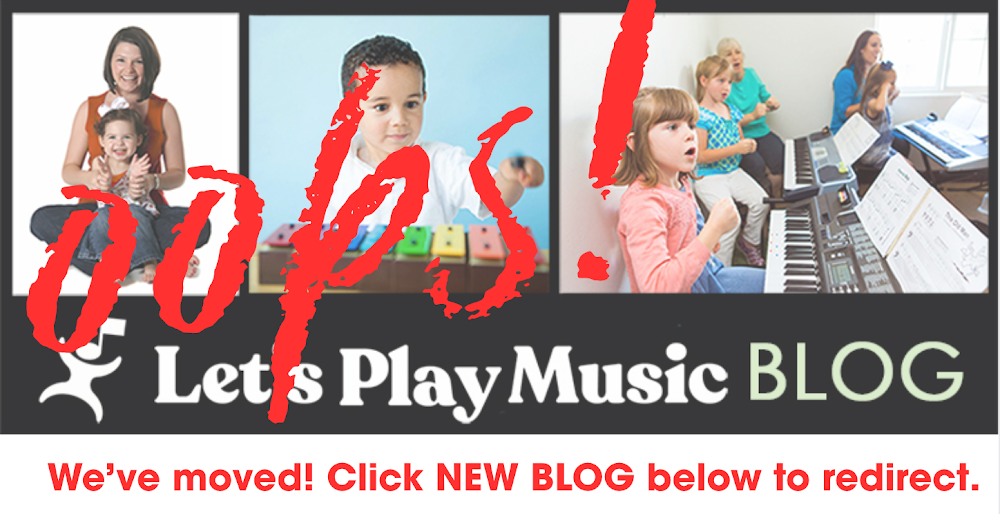The Purple semester begins in a few weeks! Let us help you and your student refresh your piano skills so you'll be totally prepared for the MAGIC. Find out how here.
If your child is working on learning Cockles and Muscles, check out these tips and tricks to help overcome the challenging parts of this song. Read them here.
How much technique do we need when teaching beginning pianists? Our program focuses on building complete musicians...you may be surprised to read our take on technique. Read more here.
What technique and posture do we cover? Find out here.
Make a major scale ANYWHERE on the keyboard using your ear and following a pattern of tones and semitones (Whole, Whole, Half, Whole, Whole, Whole, Half.) Read more here.
Our 'Magic Keys' song is packed with music theory. In this post we'll lay out everything you heard in the song, and show you how you can find Do from ANY key signature. Read more here.
CEG is the C triad or C chord. Is it Red, Yellow, or Blue? The answer is... it can be any of them! A chord's role depends on SCALE DEGREES and where Do is. Read more here.
Memorization helps you get ready for your recital AND has loads of brain-boosting benefits. Here are tips to help you memorize painlessly and keep those songs in the bank forever! Read more here.
Practice Habits: Parents need to develop habits of their own to become consistent cheer leaders and practice reminders. Here are a few tried and true ways to get going on your habit so you can, in turn, help your child. Read more here.
You hope your child practices because he LOVES making music, but right now he's only motivated by extrinsic factors. Here's a guide for talking to your child about piano practice in a way that nurtures the developing intrinsic motivation. Read more here.
Looking for more ease and peace at practice time? Author Carol Tuttle, the Child Whisperer, helps you adjust practice habits for your child's personality in this post here.
Frustrated with your child's practice time? One strategy for bringing peace and ease back into this family routine is adjusting expectations. Read more here.
When is the right time to use flashcards to drill reading skills and note skills? The answer might surprise you! Read the post here to find out and make some fun progress at note reading mastery.
Reading and playing is a mental process, so here are some tips, games, and tiny flashcards to help you master note reading at the piano. Read more here.
Do you get worried when your pianist isn't looking at the music? She's playing by ear.... is that bad? Read this article to learn when and how to guide note reading. Read more here.
Our culminating semester of Let's Play Music is called Orange Roots- it's all about the culmination of musicianship after laying 2.5 years of roots that cover all aspects of musicianship. It's also about how playing with chords and chord roots provides a foundation for composition and improvisation. Check it out here.
Playing chords in different styles is one of the secret superpowers held by musicians. Our students learn chord styles and change them up with some classic songs. Check it out here.
Learn a bit about Johann Strauss II and the real story behind the music for our skater's waltz puppet show. Read the story here.
Don't get too scared! Our Monsters puppets show uses dramatic music by Prokofiev. It's tricky to keep two themes running simultaneously, but you can learn how in this post.
Chords are a foundation for understanding music, composition, and improvisation. This classic song demonstrates what you can do with just one chord- check out some of the ways we use Paint to explore chords and inversions at many levels, in this post.
Discover the pentatonic scale and why it's such a great teaching tool for musicians. You'll be surprised to find out how this scale is popular around the entire world! Read more here.
Variation is an important element to composition. See how we use Twinkle Twinkle to help teach this idea. Read more here.
The connections songbook and program: every graduate needs it! See how we transition students from our Let's Play Music program into mainstream private piano lessons. Read more here.
Have a request/ topic for an article? Leave a comment below! New posts come out every month to help you get the most from class by playing at home.
Big Ideas in the Third Year:
Extend Your Learning with Songs/Activities from Third Year:
More Ways to Succeed in Third Year:
- Create A Piano Practice Plan with Long-Term Vision
- Tips for Memorizing Music
- How to Interview for Your New Private Piano Teacher
- Interview with Laurie Berkner: Becoming a Composer is not Magic
- Interview with The Piano Guys: Practicing, Composing, and Having Friends
Check out These Examples of Third Year Compositions:
- 2016 Composition Contest Winners
- 2015 Composition Contest Winners
- 2014 Composition Contest Winners
- 2013 Composition Contest Winners
- 2012 Composition Contest Winners
- EARN $200: We'll pay you when you refer a new LPM teacher!
- EARN $100: We'll pay you when you refer a Sound Beginnings teacher!
- Happy Money: 5 Principles to help you decide if lessons are worth the $$
- 3 Big Ways Music Boosts your brain (from Good Music Brighter Children)
- SET A GOAL: An acrostic to help you launch your musical adventure
- How to Buy a Piano: You'll need one for second year
- How to Care For Your Piano
- Holiday Gift-Buying Guide for Musical Kids
- The Piano Guys Interview: Practicing, Composing, and the value of Friends
CLICK HERE for Second Year Topics
CLICK HERE for First Year Topics
CLICK HERE for Sound Beginings Topics
























nice,thanks for sharing
ReplyDelete